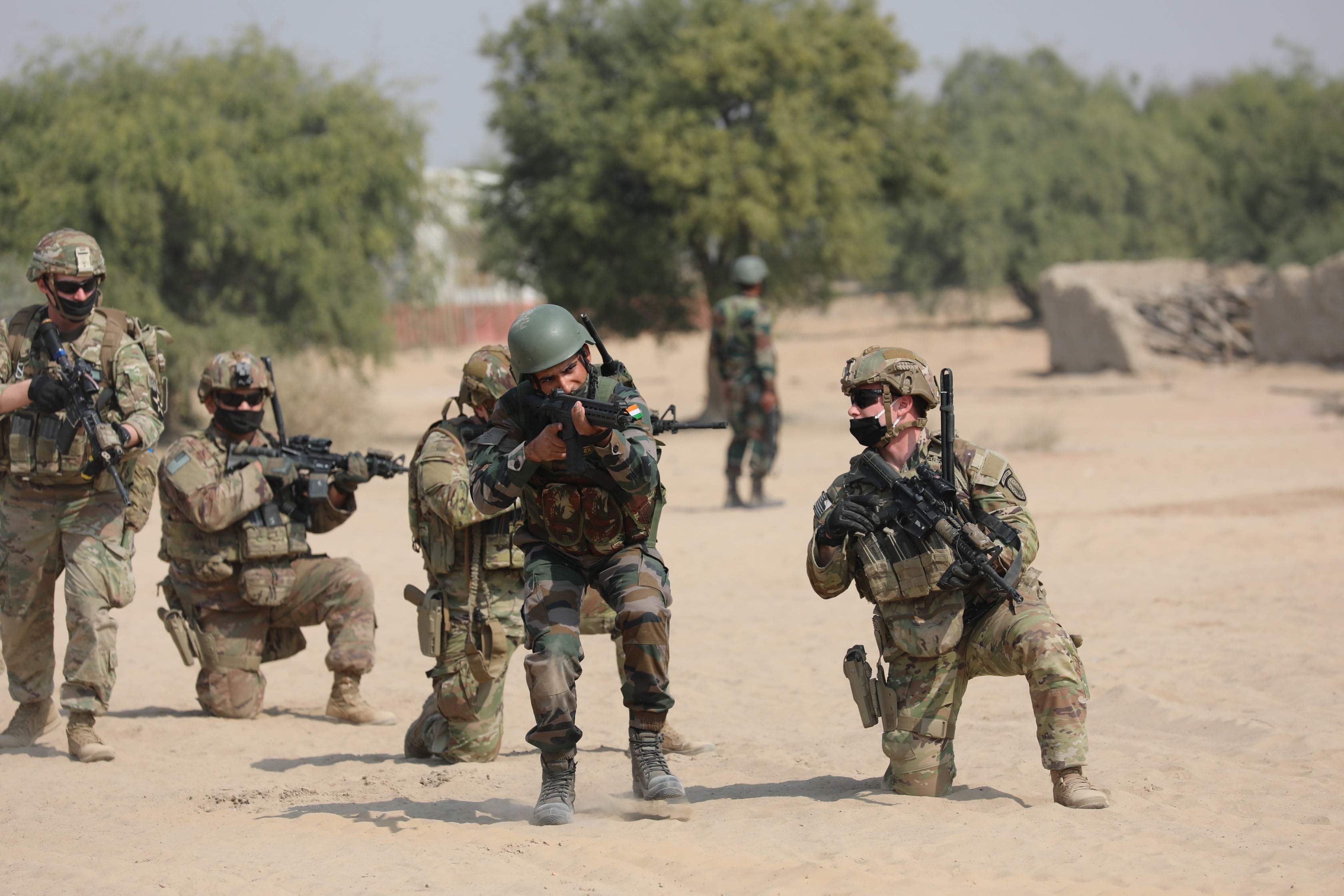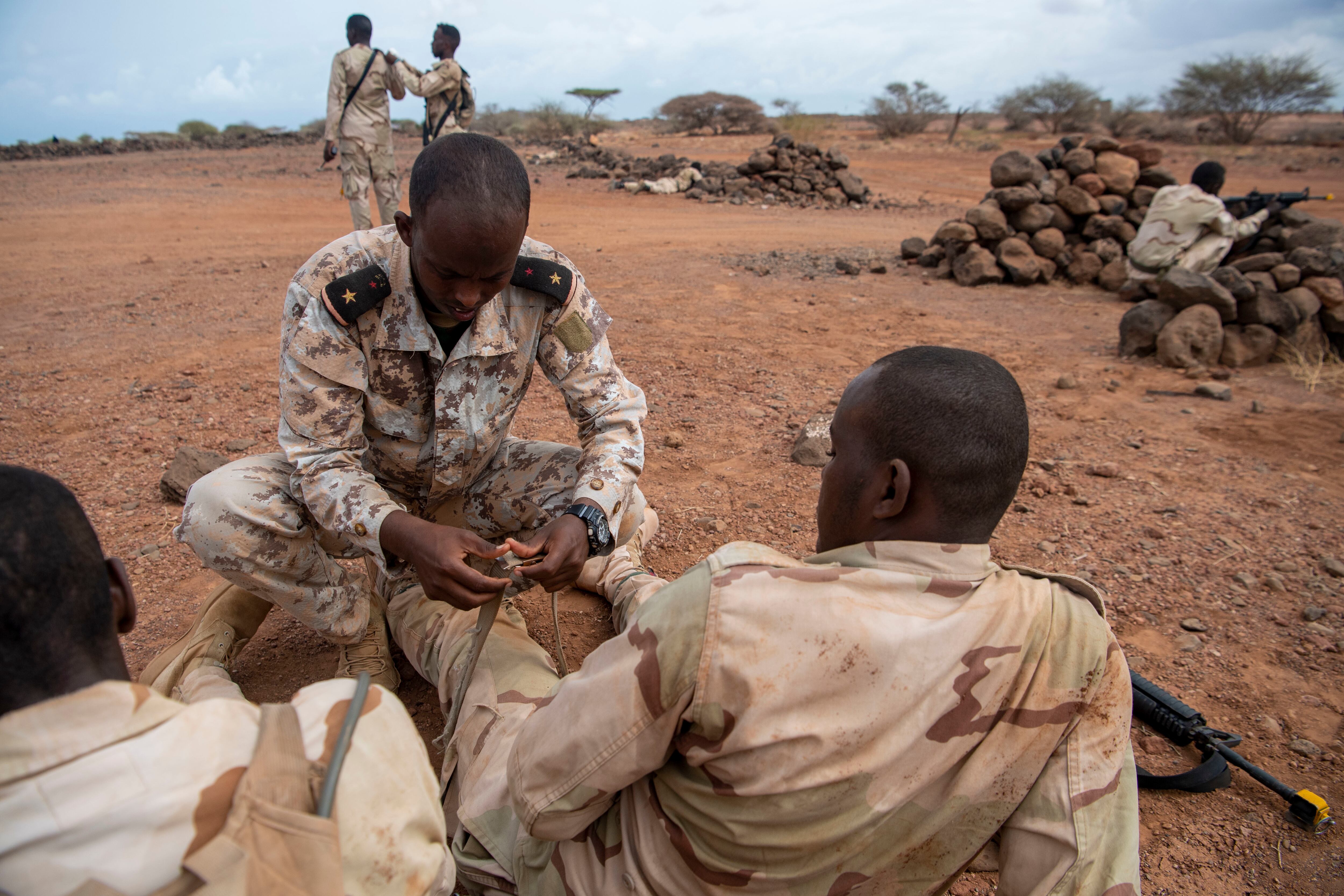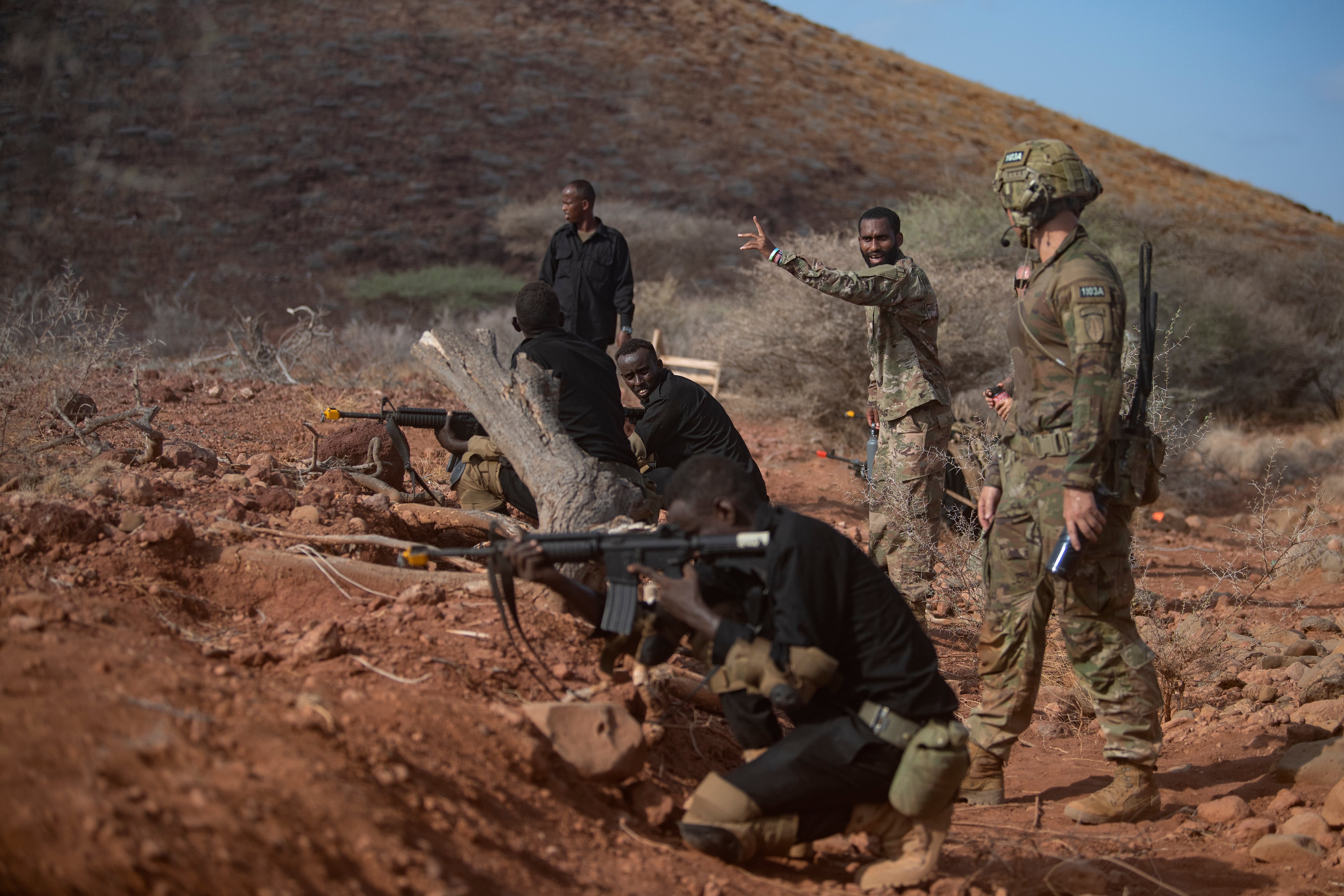A recent deployment of Army advisors to Africa saw U.S. troops pull out of Somalia but increase their footprint on the continent, beginning training missions in Senegal, Kenya and Ghana.
Col. Michael P. Sullivan, head of 2nd Security Force Assistance Brigade out of Fort Bragg, North Carolina, told reporters Wednesday that he expects the SFAB mission in Africa to grow.
Sullivan said there will be persistent partnerships with at least six to seven nations and intermittent deployments across the continent.
“Employment of the SFAB is growing,” Sullivan said. “It’s my responsibility to provide commanders a force package of 20 separate teams for any six months at a time.”
The arrangement allows the brigade to put assets in multiple locations. That’s core to the SFAB’s mission, shoring up the capabilities of partner and allied nations to improve their local security and counter the influence of peer adversaries, such as Russia or China.
The regional alignment of the SFABs — with 2nd SFAB focused on Africa — has allowed for longer timelines to be set, Sullivan said.
Units will conduct standard six-month deployments in theater, then return for 12 months of retraining, rearming and refitting.
RELATED

“This ensures units training to deploy have the most current status on the ground,” Sullivan added. The brigade has set a five-year training timetable with partner nations.
The SFABs were first formed in 2017 as a way for experienced soldiers in the conventional forces to continue advising and training missions for partner nations, allowing other units to focus on the shift to great power competition against peer and near-peer threats, like Russia, China, North Korea and Iran.
There are six SFABs, five in the active force and a sixth in the Army National Guard. They are regionally aligned to their respective combatant commands in the Middle East, Africa, Europe, South America and the Pacific.
In December, the Pentagon announced a repositioning of the majority of U.S. forces out of Somalia to other locations in East Africa. At the time, there were an estimated 700 troops, including special operations and conventional forces, in the country.
Maj. John Flach, commander of Charlie Company, 2nd Battalion, 2nd SFAB, said that while his team had been preparing for a potential mission in Somalia, they quickly shifted to work in Djibouti, a strategic point in the Horn of Africa.

Flach’s teams saw the presence of both Chinese and Russian military units in Djibouti while deployed there. But, he noted, the Djibouti armed forces created a new Rapid Intervention Battalion in 2017 and chose specifically to work with the United States.
The reason for that, Flach said, was because U.S. advising is aimed at helping Djibouti reach its own goals of better border and internal security.
The needs of each country differ. Three primary areas of concern for all of the countries they’re working with are border security, quick reaction forces for internal threats and the ability to deploy elsewhere on the continent to assist in security missions.
Sgt. 1st Class George Pittman, an explosive hazard specialist with 2nd SFAB, said he advised Tunisian partners on how to emplace border guards and observation sites to better protect the rugged terrain of the country’s southern border with Libya, which has seen a fair share of illegal trafficking and crossings.
Flach sent a four-soldier team, one captain and three staff sergeants, on a site survey for potential training partnerships in Kenya. That expedition laid the groundwork for three teams now in Kenya conducting training missions with the host nation.
Soldiers with 2nd SFAB are also on the ground in Morocco, assisting with the upcoming African Lion military exercise. The Morocco event is the final portion of the larger Defender Europe exercise, which includes airborne missions, assaults, rocket fires and a variety of training from the Baltic region to North Africa.
The SFAB began preparation for the current deployment in April 2020 in the early stages of the COVID-19 global pandemic. From that point until September 2020, the units in the brigade held a large-scale readiness exercise at four different places in the United States to simulate the disparate deployment of forces in Africa.
That exercise will now be part of a pre-deployment certification exercise for other SFABs.
The first force package on the ground in Africa during this deployment arrived in October 2020, relieving advisors with 1st SFAB out of Fort Benning, Georgia, according to an Army statement.
Those soldiers conducted small unit, air-to-ground integration and joint operations center training for forces in Tunisia. Units in Djibouti also conducted small unit training. Planned training in Somalia was suspended due to civil unrest.
The second force package arrived recently to relieve the first units and will be supporting COVID-19 vaccination efforts, conducting training development, base construction and developing intelligence course training, according to the statement.
Todd South has written about crime, courts, government and the military for multiple publications since 2004 and was named a 2014 Pulitzer finalist for a co-written project on witness intimidation. Todd is a Marine veteran of the Iraq War.





